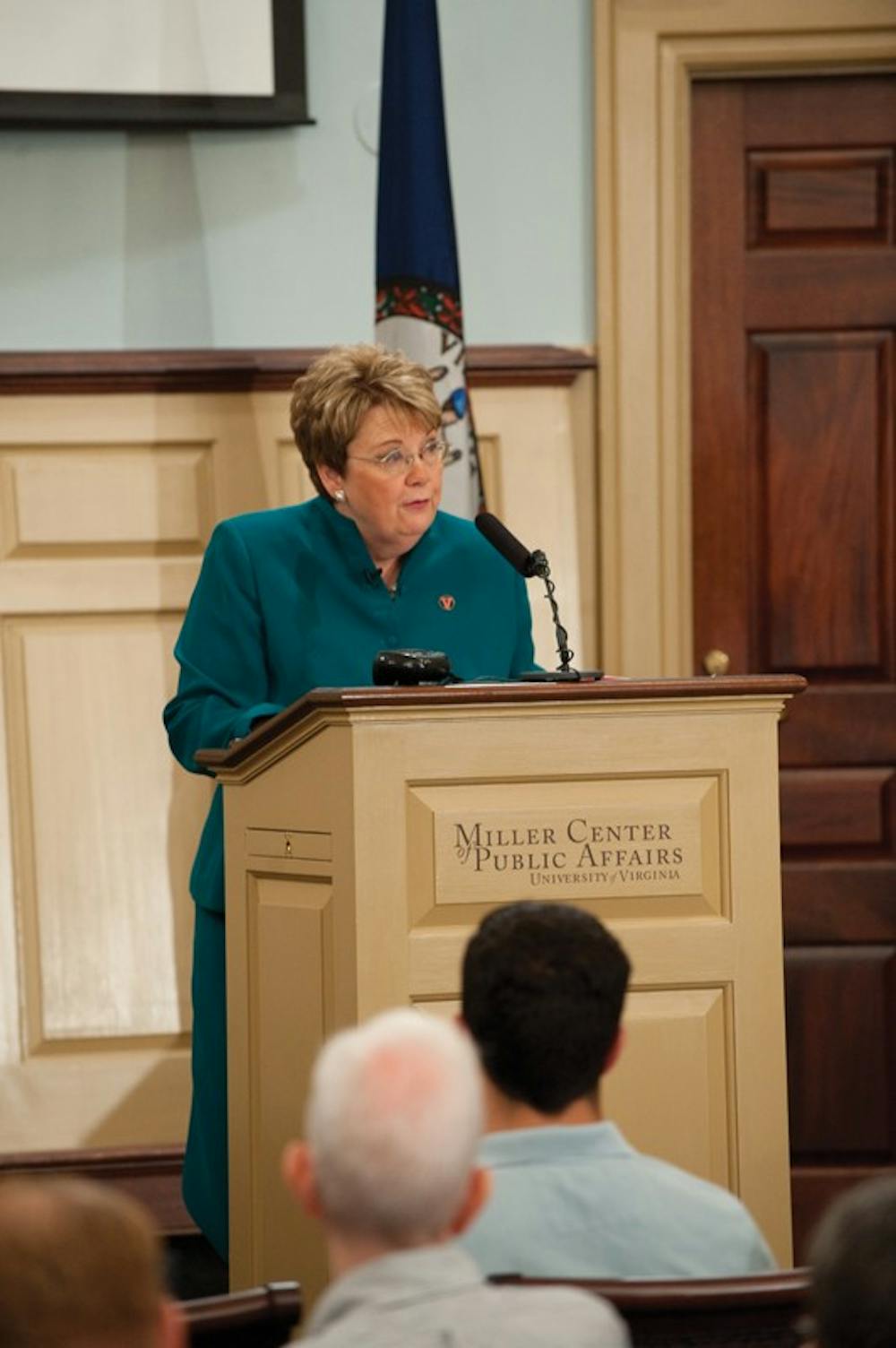University President Teresa A. Sullivan called on policymakers to devote more resources to institutions of higher education yesterday morning at the Miller Center of Public Affairs, citing their importance in fueling the U.S. economy.
To spur economic growth, "We need a renewed national acknowledgement of the essential role that colleges and universities play in driving the economy, followed by appropriate investments to support that role," Sullivan told a packed crowd.
Sullivan cited a recent study by the Association of American Universities, which estimated that university-based inventions contributed $450 billion to U.S. gross industrial output and created 280,000 new high-tech jobs between 1999 and 2007.
Sullivan referenced a CNN article which characterized the economy as "sluggish," and also showed the photograph that accompanied the article. The black and white photograph was taken in the 1960s, and it pictured the well-dressed passengers of an old bus trying to push it out of the mud. Sullivan compared "us and our fellow citizens" to those passengers, as Americans fervently try to get the economy, which is "stuck in the mud," moving again.
A decline in federal support for university research and state spending cuts for public colleges and universities threatens economic growth, Sullivan said.
This reality is exacerbated by the fact that the "United States risks losing its edge," because, as Sullivan pointed out, while support for higher education is waning in the United States, it is increasing in countries like China and India.
The best way for the country to jumpstart the economy is through "our higher education system generally, and our research universities in particular," Sullivan said.
Sullivan said universities are important contributors to economic growth for both the research they conduct and the thinkers they produce, adding, "Without adequate support for higher education, we might just stay stuck in the mud."
Sullivan supported this claim with evidence from the last half century.
"Political leaders and policymakers who are searching for a solution to the sluggish American economy are surrounded by clues to the solution," she said. "The economic and societal impact of higher education should be apparent to them every time they drink a glass of Vitamin D-fortified milk; every time they brush their teeth; every time they buckle a seatbelt; and every time they walk across a plush expanse of Kentucky Bluegrass in their back yards."
Universities play an instrumental role in basic research, or "research conducted purely to respond to scientific curiosity and to deepen our knowledge, often with no direct commercial benefits," Sullivan said.
The president cited a statistic from the National Science Foundation's 2010 Science and Engineering Indicators, which found that universities conducted 56 percent of the basic research in the United States in 2008, while business and industry conducted less than 20 percent. This demonstrates how the research role of universities has been magnified as "corporations have pulled back from basic research and focused on development," Sullivan said.
Sullivan also emphasized how research universities are imperative not only for the rapid advancements made in existing industries, but also for the birth of entirely new fields and industries "like biotechnology and the Internet."
Third-year College student Adam Joseph agreed with Sullivan's sentiments, expressing concern for consequences down the road.
"I think it was a great point that investment could be technically counted as a form of spending, and policymakers often overlook what long-term ramifications cutting spending will have when it concerns universities," Joseph said.







